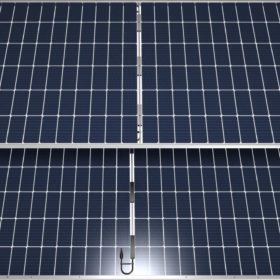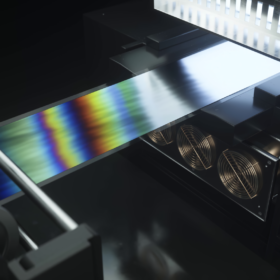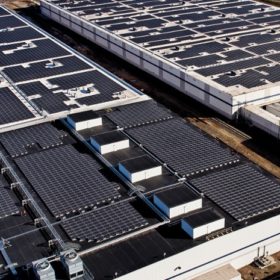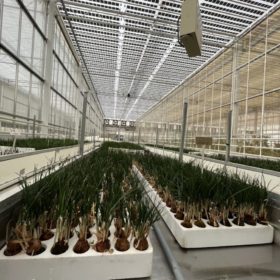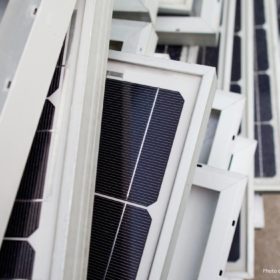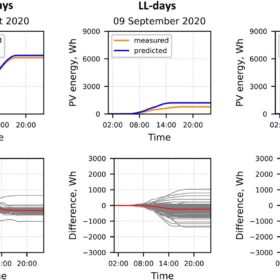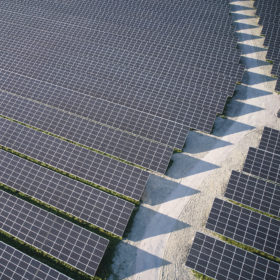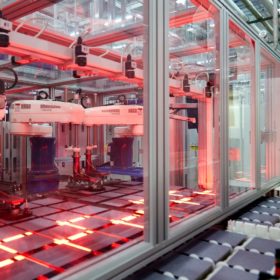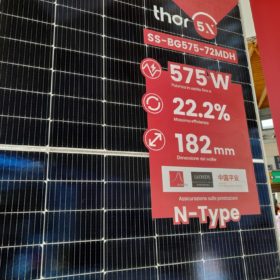Hevel Solar unveils 450 W heterojunction solar panel with M6 cells
Russia’s Hevel Solar said its new modules are based on 166 mm x 166 mm half-cut cells. They reportedly have a bifaciality factor of 90% and a temperature coefficient of -0.26% per degree Celsius.
Perovskites and microgrooves can revolutionize solar
Ambitious targets for solar energy generation present challenges to an industry keen to explore new avenues for solar production. Neil Spann, chief executive of UK thin film solar manufacturer Power Roll, describes a commercial solution to the problems of over reliance on silicon solar modules.
Brookfield and Amazon Web Service sign renewable energy, Cloud deal
The global renewables investor has selected Amazon Web Service as a preferred cloud provider to gain business insights, improve workplace safety, and automate hydroelectric, wind, and solar operations. In return, it has agreed to provide clean power for Amazon’s operations in Europe, North America, and India.
PV shade screens for greenhouses, agrivoltaics
A Saudi Arabian startup has developed a modular solar panel for agrivoltaic applications. It is specifically designed for locations with high solar radiation levels and protects plants and crops from excess sunlight.
Itochu to start recycling solar modules
Japan’s Itochu has announced a new tie-up with France’s Rosi Solar, which develops tech to recover and recycle high-purity silver, copper and silicon from solar modules.
COP27 was a crucial step forward for hydrogen – here’s why
Three import deals signed by the EU at Sharm El Sheikh during this month’s COP27 summit show the European Union is serious about harnessing green hydrogen for its heavy industry, and about distributing the fruits of the energy transition on an equitable basis.
How variable is rooftop solar power?
A research group has developed a new methodology that shows PV systems located in the same area could have similar distributions of power ramps. Their three-step method could be used for the dimensioning of rooftop arrays and the scheduling of daily operations.
A game of risk
The rising popularity of “baseload” power purchase agreements (PPAs) has posed questions to solar electricity suppliers in the German market. How can projects that do not generate at night, and with wide seasonal output variation, effectively supply constant power to consumers? More importantly, who shoulders the price risk?
Qcells, European consortium launch production line for tandem silicon-perovskite solar cells
South Korea-based Qcells and a research group led by Helmholtz-Zentrum Berlin (HZB) have established a pilot manufacturing line for silicon-perovskite tandem cells in Thalheim, Germany. The project aims to speed up the technology’s mass manufacturing and market penetration.
Sunova Solar releases 575 W n-type PV panel with 22.2% efficiency
Sunova Solar is offering five versions of its new solar panels, with power outputs from 555 W to 575 W and efficiencies ranging from 21.4% to 22.2%. They have a temperature coefficient of -0.31% per degree Celsius.
